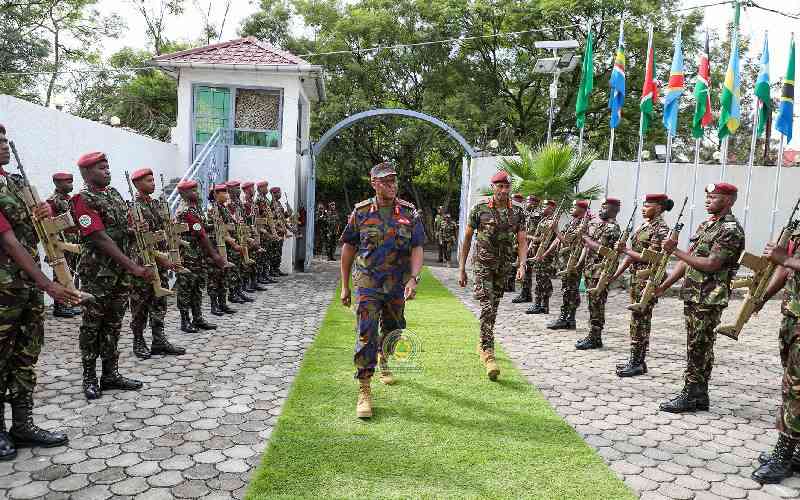×
The Standard e-Paper
Home To Bold Columnists

The East African Community Regional Force (EACRF) has begun withdrawing troops from the Eastern Democratic Republic of Congo (DRC), leaving behind a region that experienced peace for a few months, a first in several years but now faces an uncertain future.
Kenya was the first of the East African nations to withdraw troops from the troubled region as two contingents of at least 100 soldiers each flew out of the Goma airport back home on Sunday after spending a year in the war-torn nation.